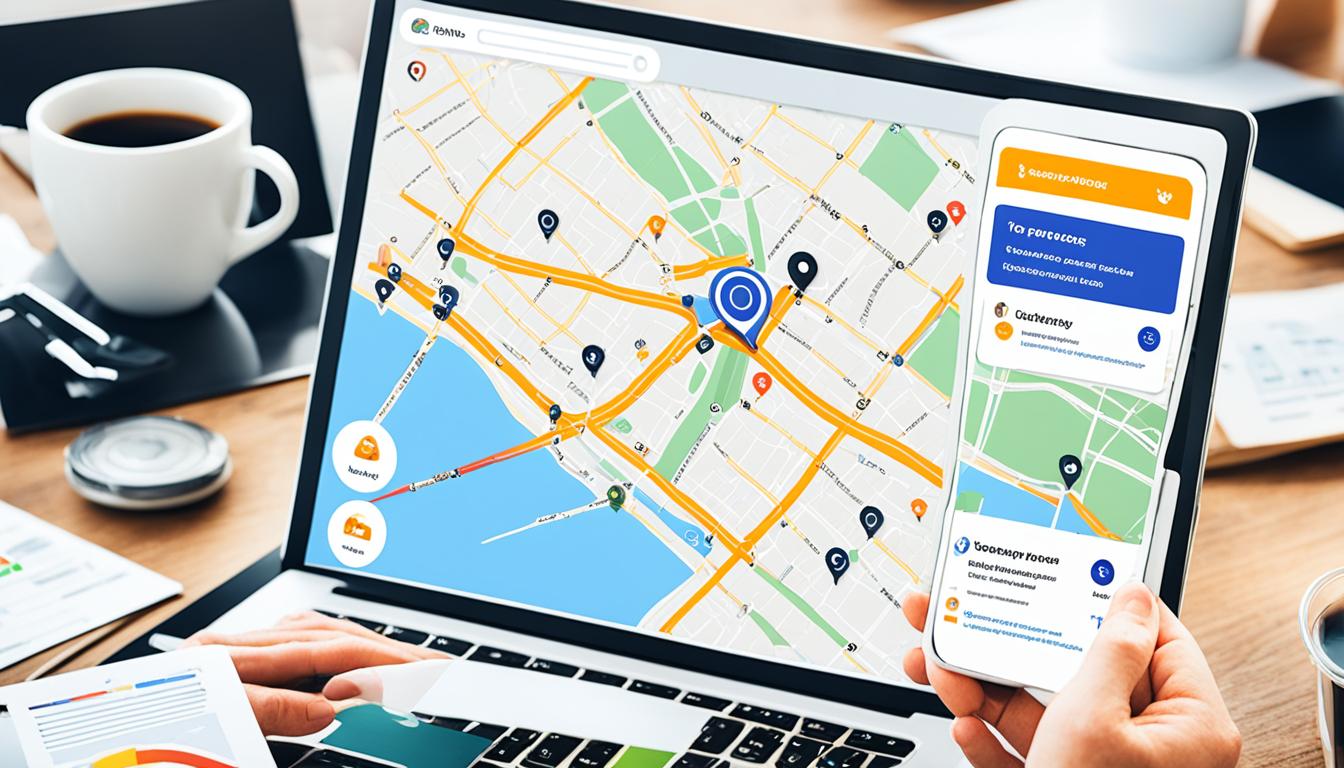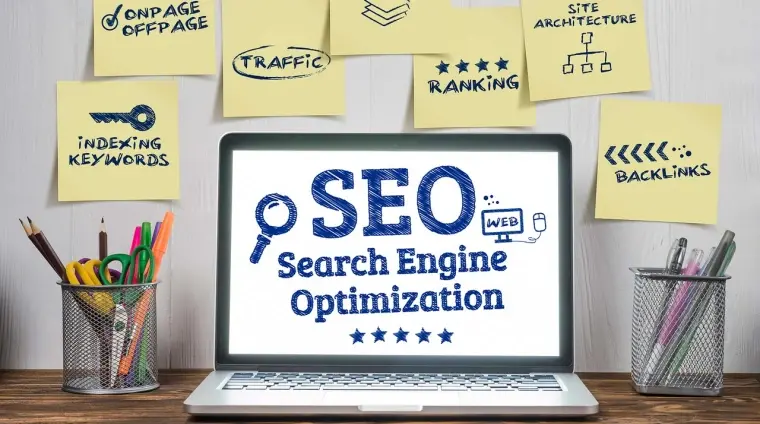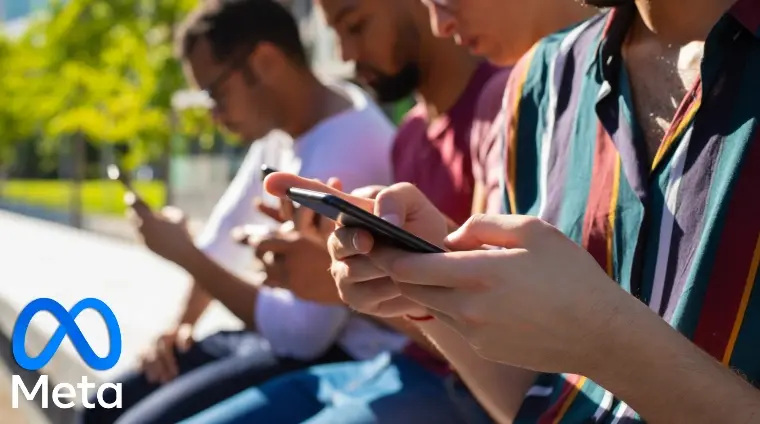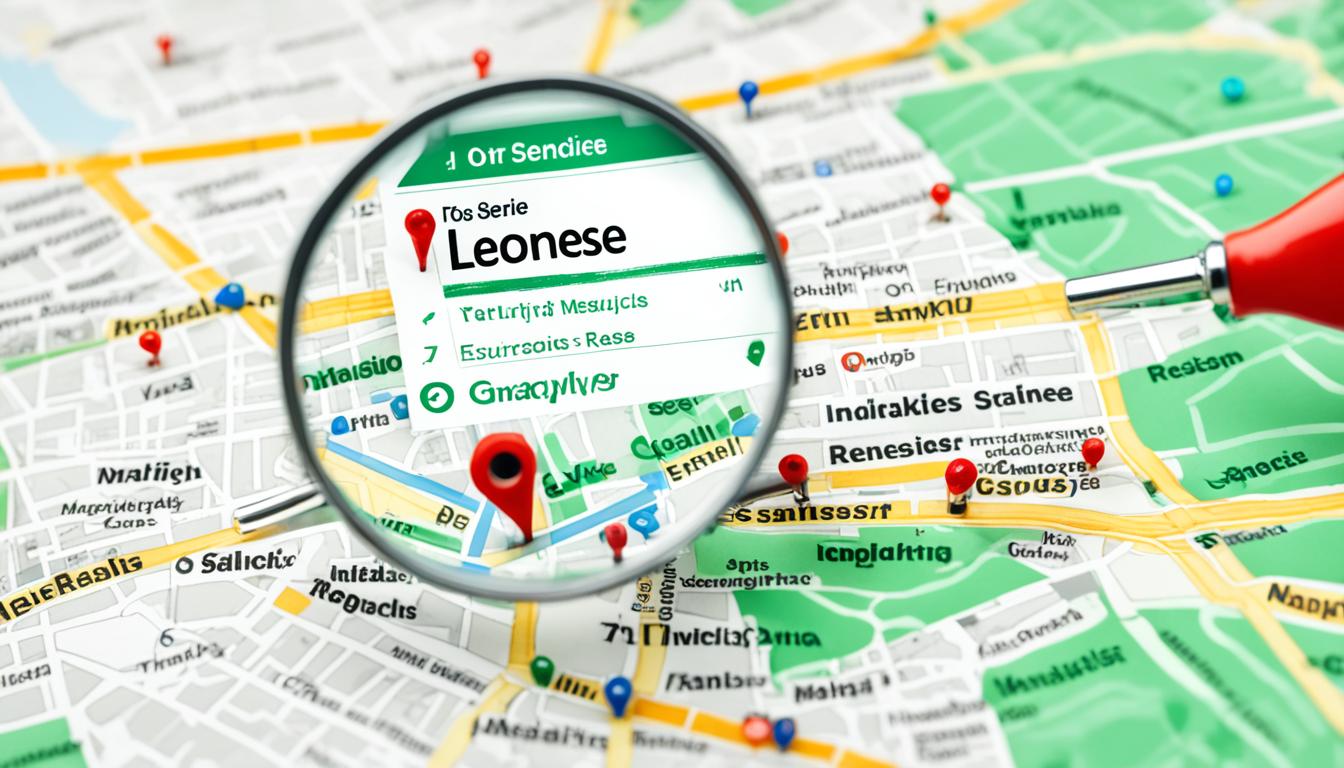Did you know that 40% of local SEO campaigns earned an ROI of 500% or more? With 82% of people using their phones to search for businesses nearby, the value of local SEO is huge for small businesses. It’s a strategy to boost a local business’s visibility on search engines through tactics like better rankings and more website visitors.
It mainly focuses on keywords that are tied to specific locations, sprucing up the Google My Business profile, and aiming for better spots in local search results. Local SEO is different from regular SEO. It pays more attention to things like customer reviews, keywords that show where your business is, and your business’s profile on Google. But regular SEO looks more at creating great content, getting links from other sites, and ensuring your website is technically sound.
For small businesses serving their local area, local SEO is a game-changer. It works quicker than traditional SEO as it targets more specific terms. This strategy helps small businesses get noticed more in their area, appear higher in search results which leads to more visits, stand out among rivals, and build more trust within the community.

Key Takeaways
- Local SEO focuses on location-specific keywords, Google My Business optimization, and increasing Local Map Pack rankings.
- Local SEO ranking factors are influenced by online reviews, geo-location keywords, and Google Business Profile.
- Local SEO can generate faster results than traditional SEO for small businesses with a local audience.
- Local SEO helps small businesses increase brand awareness, achieve higher rankings, and compete against local competitors.
- Implementing a comprehensive local SEO strategy is crucial for small businesses serving a local customer base.
What is Local SEO?
Local SEO is all about improving a business’s online visibility in local areas. It focuses on making a company show up when people nearby search online. This strategy is a must for any business wanting to attract locals, be it small or big. Key factors in local SEO include online reviews and using location-based keywords.
Meanwhile, traditional SEO is broader and looks at more general online visibility. It places a bigger emphasis on quality content and backlinks to improve web traffic. While both aim to boost a company’s online presence, their methods differ because of their target audiences.
Definition of Local SEO
Local SEO is a specific online strategy. It’s designed to help businesses rank better on searches within their local areas. This is crucial for small businesses. They work hard to grab the attention of anyone looking nearby, whether online or visiting their store.
Importance of Local SEO for Small Businesses
For small businesses, local SEO is a game-changer. It helps them stand out in their community, both online and in person. With strong local SEO, a business can expect more traffic to their store or website. This happens because they show up higher on local searches, creating brand awareness.
It also helps them beat their local competition. Combined with trust-building from solid online reviews, local SEO is the key to success. By focusing on what nearby customers are looking for online, small businesses can make a big impact.
Local SEO vs Traditional SEO
Traditional SEO aims at drawing a big online crowd regardless of location. It uses broad keywords and general tactics to increase a site’s visibility. On the other hand, local SEO zooms in on a specific area. It uses strategies like optimizing Google Business Profiles and focusing on local keywords.
This local focus greatly benefits small businesses. It lets them reach local customers more effectively. By using geo-targeted words, they outrank others in the area, bringing in more local business.
Local SEO Ranking Factors
Local search engine optimization (SEO) focuses on boosting a small business’s rank in local searches. It blends over 200 general SEO factors with additional local search considerations.
Ranking Factors for Local Organic SERP
To improve in local searches, small businesses should pay attention to three main factors:
- On-page signals: This means having great, relevant content on your website. Make sure to use solid on-page SEO practices, too.
- Local link building: Aim to get quality, relevant backlinks from other local entities and respected local sites.
- Behavior signals: Boost metrics like lower bounce rates, longer site visits, and more clicks with engaging content.
Ranking Factors for Google Local Map Pack
The Google Local Map Pack showcases top listings. Here are the main factors for ranking well there:
- Google My Business optimization: Make your Google Business Profile is up-to-date and managed well.
- Review signals: Positive customer reviews matter a lot. Respond to them positively to enhance your local image.
- Proximity to the searcher: How close your business is to searchers influences Map Pack results a lot.
Improving in these areas helps small businesses stand out in local search, both in the organic listings and the Map Pack. This can lead to more local customers visiting your site or store.
Optimize for Google Business Profile
Google My Business, now called Google Business Profile, is key for local SEO. Small businesses should claim and verify their profile, optimize it with good info, and handle reviews well.
Claim and Verify Your Google Business Profile
First, claim and verify your Google Business Profile. You’ll get a postcard with a code for verification. This ensures your business shows up in local searches on Google.
Optimize Google Business Profile Listing
After claiming and verifying, optimize your profile listing. Put up all your business info like address and phone number. This helps Google match your business with the right searches.
Always update your business hours. Add any special hours for holidays too. This makes customers more confident about visiting your business.
Encourage and Respond to Customer Reviews
Encouraging and responding to reviews is also important. Your Google Business Profile affects how attractive your business is to customers. Good reviews and replies can boost visibility and attract more visitors.
By keeping your Google Business Profile fresh and complete, your business can stand out in search results. This can draw more customers to your physical store or website.
Ensure NAP Consistency
It’s key to keep your NAP info (name, address, phone number) the same everywhere online. Make sure your NAP is text on your site, not just in images. This text should match on your site, Google Business Profile, and online listings. If your NAP info is different in different places, it can hurt your local search rankings. So, keep everything correct and current.
What is NAP in Local SEO?
NAP is the name, address, and phone number of your business. It’s very important for local SEO. Having the same NAP everywhere helps search engines and customers know your info is right. This builds trust and makes it easier for people to find you in local searches.
Displaying NAP on Your Website
Put your NAP info in text on your website, not just images. This helps search engines read and use your info better. Keeping the same NAP style on all pages makes your business more trustworthy and easier to find online.
| Consistent NAP | Inconsistent NAP |
|---|---|
| ABC Company 123 Main St. Anytown, CA 12345 (123) 456-7890 |
ABC Company 123 Main Street Anytown, California 12345 123-456-7890 |
Different NAP details, like changing how you show your address or phone number, can hurt your local search rankings. Use the same NAP info everywhere online to help more people find and trust your business.
Optimize Online Directories and Citations
Boosting your online directory listings and local citations is key for good local SEO. Places like Express Update, Neustar Localeze, Foursquare, and Factual share data across many sites. Making sure all your business details are correct on these local listings is very important. If they’re wrong, your local search visibility could suffer.
Major Data Aggregators for Citations
These important data aggregators help spread your business info to lots of online directories and platforms. It’s vital to keep your data updated on these main aggregators. Doing so helps improve your local citations and raise your local search ranks.
Importance of Consistent and Accurate Citations
Regularly checking and updating your online citations is a must for local SEO. Having the wrong info like name, address, and phone number (NAP) in local listings can be bad for business. It hurts how you show up in searches and lowers your trust with customers. Making sure all your local listings have the exact same, correct business info is crucial for local SEO success.
Perform a Local SEO Audit
Doing a detailed local SEO audit is vital. It helps you find where to get better and watch how you grow. This check looks at your Google My Business page, how well your site does in Google Search, your on-page SEO, and your online citations. It also sees how you stack up against others in your area. By seeing what you do well, what needs work, and where you can grow, you can make a plan to get your business seen more in local searches.
A recent study by Brightlocal found that 84% of folks say reviews matter a lot when they pick a new business. Good reviews help your business show up better in local searches and get more customers. So, it’s important to ask happy customers to leave reviews. You can even offer them something nice in return.
There are seven key steps in a local SEO audit. These include looking for the right keywords, checking your website health, and seeing how you do on Google Business. It also means checking your business information online, how your reviews stack up, and what the numbers tell you. Don’t forget to see what your competition is up to. Using tools like Google Analytics, Ahrefs, HubSpot, and GeoRanker makes this job easier.
A full local SEO audit helps small businesses know where they can do better. This means making their website better, looking after their Google My Business page, and keeping their info online up-to-date. Doing this lets them make a strong plan to show up more in local searches. And that can help them beat their rivals in the local market.
Improve Internal Linking Structure
Optimizing your internal linking structure boosts local SEO rankings. It makes website navigation smoother and helps organize its information. This also spreads authority and ranking power between your pages. By wisely linking relevant pages, you enhance user experience. This helps search engines visit and understand your site better. It also boosts the impact of important, location-based pages.
A strong internal linking strategy is key. It builds a solid website structure and connects your content effectively. This guides users and search engines to find your best content. Such a strategy improves your overall online presence and local SEO.
It’s crucial to constantly check and improve your internal linking. This is essential for both good user experience and SEO. By always refining how your site’s pages connect, you make its structure better for users and search engines. This leads to more relevant traffic and better results for your business.
On-Page Optimization
On-page SEO is essential for local SEO. It means tweaking your web pages to target nearby customers. This includes updating your URLs, title tags, and more with local keywords. Doing this shows search engines you’re relevant to your area, helping small businesses stand out locally.
Optimize URLs, Titles, Headers, and Meta Descriptions
To improve local on-page SEO, focus on your page details. Use keywords that locals would search for when finding your business. It tells search engines you’re closely tied to your area, boosting your local search rank.
Create High-Quality Local Content
Creating top-notch content for your area is also key. Share stories about your local wins and feature your unique services. Include local news and events to connect with your community. This type of info makes your business a go-to in your neighborhood, boosting your SEO.
| Key Local SEO Statistic | Percentage |
|---|---|
| Local searches resulting in a purchase | 28% |
| Millennials who visit a business after a local search | 42% |
| Local searches conducted on mobile devices | 50% |
| Voice searches on smartphones | 55% |
| People who use mobile devices to access the internet | 90%+ |
By tweaking your site and sharing great location-specific content, you’ll boost your local SEO. This can lead to more customers discovering your business in your area.
Add Location Pages
If your business has many locations, make location pages for each. This is great for local SEO. Include important details like the address and phone number. Also add store hours and a unique description of each place. This helps search engines understand your locations better. It’s especially good for local SEO for multi-location businesses to do well in local searches.
Each location page should mostly have unique content just for that place. Around 40% to 60% of the content can look similar but it’s still unique. You want to show what makes each place special through staff bios, local reviews, and services offered. You can also include directions, parking tips, and more.
Avoiding content duplication and making pages easy to find is key. So is linking them properly within your site. Use things like sitemaps to help users and search engines navigate. Linking to them from relevant content also boosts their visibility.
It’s important to get what people are looking for right on these pages. This could be about your services or your brand. Making location pages better helps show what’s unique about each place. This can really help improve your local SEO in different areas.

Local SEO
Being active on social media and using Google Posts are great for local SEO. You should share content about your location and talk to the people near you. Also, it’s important for your website to work well on phones. More and more people are searching locally on smartphones. A website that’s quick and easy to use on mobile tells search engines you’re good for local searches.
Engage on Social Media and Google Posts
Social media and Google Posts are key for local SEO. Sharing local news and events can connect you with your community. Plus, talk with your followers and get them to comment on your posts. This helps boost your local SEO on social media.
Ensure Mobile-Friendliness
We live in a mobile-first age where your website must work well on smartphones and tablets. A site that loads fast and is easy to navigate shows you care about your local customers’ experience. Google also likes websites that are mobile-friendly. So, this is a must-do for local SEO.
Build Local Links
It’s vital for small businesses to get local backlinks to succeed. Links from local businesses and trusted sites can make your small business more credible locally. This helps your business be more visible and trusted in your community.
Importance of Local Links
Local links can really boost how well your small business shows up in online searches. When you get links from other local sites, it shows people that your business is active and knowledgeable in the area. Plus, links from big sites like .org or .edu can really boost your site’s ranking.
Local Link Building Tactics
Some smart moves for getting local links are working with other local companies, helping out with community events, and writing for local blogs. Avoid sending out tons of generic requests for links. Instead, focus on making each request specific to the opportunity.
A great way to earn links is by becoming a go-to source in your community and getting noticed by local media. Using tools to find the best local spots for links can be a big help too. Remember, the best way to get quality backlinks is through real relationships and community work.
Participate in Local Community
Getting involved in your local community can boost your small business’s local SEO efforts. By attending local events, joining business organizations, and connecting with community members, you can form strong relationships. Doing this can get your business mentioned in the media and improve how people see you, building your reputation as a trustworthy local business. This kind of community involvement and local networking can also bring benefits from search engines, like important backlinks and citations.
When you actively join your small business community, you not only get more seen online but also become a leader locally. By working with other firms, going to events in your industry, and supporting local projects, you show you’re dedicated to the area. This can lead to partnerships and new customers, a big win for your local SEO and connecting with the people you want to reach.
Conclusion
It’s key for small businesses to use local SEO to reach local customers. They need to make their Google Business Profile top-notch. Keeping your info accurate, verifying online listings, and checking your strategies regularly are important.
Small businesses should build a strong online and local presence. They can do this by using local link building and improving their search results. Staying active in the community and keeping an eye on their SEO efforts is vital for success.
Local SEO is a process, not a one-shot deal. It involves optimizing your web presence and keeping close to your community. Following these strategies will help small businesses shine in local search results, attracting the right customers.
FAQ
What is Local SEO?
Why is Local SEO important for small businesses?
How does Local SEO differ from Traditional SEO?
What are the top ranking factors for Local SEO?
How can small businesses optimize their Google Business Profile?
What is NAP in Local SEO and why is it important?
How can small businesses optimize their online directory listings and citations?
What should a local SEO audit include?
How can internal linking structure impact local SEO?
What on-page SEO factors are important for local SEO?
How can small businesses with multiple locations improve their local SEO?
What other local SEO tactics should small businesses consider?
Source Links
- https://www.boostability.com/resources/local-seo-for-small-business-guide/
- https://www.collaborada.com/blog/local-seo-small-business-tips
- https://blog.hubspot.com/marketing/local-seo
- https://www.forbes.com/sites/forbesagencycouncil/2022/11/07/national-seo-vs-local-seo/
- https://www.semrush.com/blog/what-is-local-seo/
- https://mailchimp.com/resources/what-is-local-seo/
- https://www.semrush.com/local/blog/local-seo-ranking-factors/
- https://backlinko.com/local-seo-guide
- https://databox.com/google-my-business-seo
- https://support.google.com/business/answer/7091?hl=en
- https://seo.ai/blog/nap-consistency-seo
- https://www.brightlocal.com/learn/local-citations/nap-data-accuracy/nap-consistency/
- https://www.thehoth.com/learn/local/seo/local-citations/
- https://www.brightlocal.com/learn/local-citations/managing-local-citations/optimizing-local-citations/
- https://ducttapemarketing.com/citations-build-successful-local-seo-strategy/
- https://www.semrush.com/local/blog/local-seo-audit/
- https://www.brightlocal.com/learn/local-seo/management/auditing/
- https://blog.hubspot.com/marketing/local-seo-audit
- https://yoast.com/internal-linking-for-seo-why-and-how/
- https://www.stanventures.com/blog/internal-links/
- https://www.rioseo.com/blog/internal-linking-best-practices/
- https://www.thehoth.com/learn/local/seo/onpage-optimization/
- https://www.brightlocal.com/learn/local-seo/local-search-optimization/on-page-seo/
- https://www.searchenginejournal.com/local-seo-onpage-tips/433667/
- https://searchengineland.com/create-perfect-location-page-seo-visitors-432441
- https://www.brightlocal.com/learn/local-seo/local-search-optimization/location-pages/
- https://www.webfx.com/blog/seo/seo-vs-local/
- https://www.semrush.com/local/blog/local-seo-backlinks/
- https://linkbuilder.io/local-link-building/
- https://www.thehoth.com/learn/local/seo/link-building/
- https://www.wordandbrown.com/NewsPost/Local-SEO
- https://asmmdigital.com/blog/local-seo-home-services
- https://www.highervisibility.com/seo/learn/what-is-local-seo/
- https://www.webfx.com/blog/seo/what-is-local-seo/
- https://seoleverage.com/local-seo/what-is-local-seo-and-why-it-is-important/

















